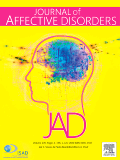
research spotlight:
The Impact of Probable PTSD on Trait and State Emotional Responding Among Survivors of Lifetime Sexual Violence
Eshelman, L. R., McConnell, A. A., Messman, T. L., Dykstra, R., Gratz, K. L., & DiLillo, D. (2022). The impact of probable PTSD on trait and state emotional responding among survivors of lifetime sexual violence. Psychology of Violence, 12(3), 127-136.
https://doi.org/10.1037/vio0000423
ABSTRACT
Objective: This study investigated the impact of lifetime sexual violence exposure and probable posttraumatic stress disorder (PTSD) on trait and state emotional responding among a sample of 169 community women. Method: Participants completed self-report measures of experiences of lifetime sexual violence and trait emotion modulation and emotional reactivity. Participants also reported on their negative affect in response to fear- and sadness-eliciting film clips, as well as their perceived ability to modulate negative emotions following a distressing laboratory task. Results: Women with lifetime sexual violence and probable PTSD reported greater trait difficulties adaptively responding to negative emotions, greater negative affect reactivity in response to the fear-eliciting film clip, and greater perceived difficulties modulating negative emotions following a distressing task than two comparison groups: women with lifetime sexual violence but no probable PTSD and non-trauma-exposed controls. No group differences emerged for reactivity to the sadness-eliciting film clip. Conclusions: Findings suggest that both emotion modulation difficulties and heightened negative emotional reactivity are related to PTSD status rather than sexual violence exposure. Responses to PTSD interventions may improve if, prior to intervention, patients are provided training on tolerating negative emotions and enhancing adaptive emotion modulation abilities.

Terri
Alex

Lee
%20-%20b_edited.jpg)



